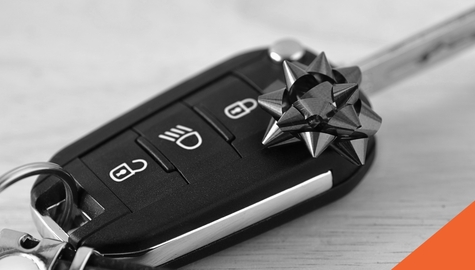FAQ: What Is Accident Forgiveness?
Tuesday, 5 March 2024
At Billyard Insurance Group, we know that accidents are sometimes simply inevitable, even if you are at fault. When you purchase car insurance with us, your broker might offer something called Accident Forgiveness, which we will explain in this blog.
We hope to empower you to make an informed decision about your car insurance coverage once you understand your options.
Other Optional Car Coverage:
Physical Damage Coverage
Loss of Use Coverage
Coverage for Non-Owned Vehicles
What is Accident Forgiveness?
So, what is accident forgiveness insurance, and what does accident forgiveness mean for you?
Accident forgiveness is an optional add-on to your car insurance policy that is available for eligible drivers. At-fault car accidents have a BIG impact on your insurance because they change your rating as a driver.
Even if you do all you can to avoid an accident, if you are determined to be at fault, your insurance rate would normally increase upon renewal or when purchasing a new policy. If you are in your first at-fault collision and you have Accident Forgiveness, your insurance provider would not count it against you, meaning your rating as a driver is not impacted, and your premium will be unaffected by the accident.
Ultimately, you can protect your clean driving record by opting for accident forgiveness insurance. It ensures that one minor accident doesn't automatically impact your insurance rates.
How Does Accident Forgiveness Work?
Here’s an example of how Accident Forgiveness could help you in a collision:
It’s winter. It’s snowing. The roads are slippery. Your tires can’t get traction, and you struggle to come to a stop at a red light. You slide into an intersection, T-boning another vehicle. If you are determined to be at fault when the collision is reported and if it’s your first at-fault collision, Accident Forgiveness can be used as a one-time deal to ensure your insurance premium won’t increase. Your insurance company will waive rating the accident when you renew.
Here are a few facts that will help you better understand Accident Forgiveness:
- A standard car insurance policy does not include accident forgiveness – it’s an extra coverage. If you aren’t sure whether you have it, check with your insurance provider before assuming you do.
- Accident Forgiveness is not available to everyone – only certain drivers qualify. Our BIG brokers will only offer it if you are eligible for it.
- You will still have to pay your deductible for any damage to your vehicle.
- If you end up with other charges under provincial traffic laws (e.g. careless driving), it will not help you with those charges. Accident Forgiveness coverage only prevents your insurance rate from going up after your first at-fault accident.
- You are still subject to any costs for your claim that exceed your policy limits.
- Accident Forgiveness is specific to your insurance provider. If you use it and then change providers, your new insurance company will see the accident and use it as a determining factor in your new rate.
Why Do You Need Accident Forgiveness?
No one likes to pay more for insurance, right? However, first-time accident forgiveness is an extra layer to safeguard you from skyrocketing premiums after your first incident. Even the best of drivers have bad days. Plus, we experience extreme weather in Canada that could result in dangerous road conditions, putting you at greater risk of unintentional mistakes. Accident Forgiveness can save you hundreds of dollars on your annual car insurance premium in the long term for a minimal fee if you qualify.
How Do I Qualify for Accident Forgiveness?
If you're involved in your first accident, forgiveness insurance is an excellent benefit for those deemed good drivers by their insurance company; however, not everyone will qualify for this coverage. We recommend contacting a BIG broker to find out about your eligibility. Some general guidelines could give you an idea of whether or not you’ll qualify. You will likely qualify if your driving record is clean (meaning you have no previous at-fault accidents). Insurance for accident forgiveness is considered additional coverage and may require a qualifying period. So, if you have previous accidents on your driving record, it will greatly depend on how many years you’ve been accident-free.
Are There Any Exclusions?
In Alberta, Ontario, and Nova Scotia, Accident Forgiveness is specific to your insurance only – it will not help you with the impact of the following things:
- Demerit points
- Charges against Provincial Traffic Laws
- Some insurers do not cover secondary drivers
- Additional at-fault accidents (until your driving record is clear for long enough)
What Happens After I Use My Accident Forgiveness?
Once you use your one-time use of this coverage, your insurer will have to rate for any subsequent at-fault collisions, meaning you will likely pay more on your insurance. It might be tempting to move to another insurance company, but they will be able to see all your accidents and determine your rate based on them, which could increase your insurance premium even more. Thankfully, if you remain accident-free for a period of time decided by your insurance provider, you may become eligible for the coverage again.
Have more questions about Accident Forgiveness? Or just questions in general? Give a BIG broker a call today! If you’re ready to start a car insurance quote, start here.



